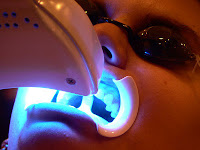From Time.com By Amie Ninh Thursday, April 21, 2011 Consider this: of the trillions upon trillions of cells in the human body, only about 1 in 10 is actually human. The rest belong to microbes, which colonize every inch of you, from the inside of your mouth to the skin between your toes. It's no wonder, then, that research is increasingly finding that the diversity of these microbes has important effects on health. The vast majority of microbes — perhaps up to 100 trillion of them — live in our guts. So-called gut bugs help digest our food, assist our immune systems, maintain the health of the intestines, produce vitamins, aid metabolism and extract calories from food (which is why much research has associated gut bugs with obesity). To better understand the way gut bugs work, a new study has aimed to categorize the lot of them. The study, led by Peer Bork of the European Molecular Biology Laboratory in Heidelberg, Germany, found that the bacteria in our guts falls into one of t...






















